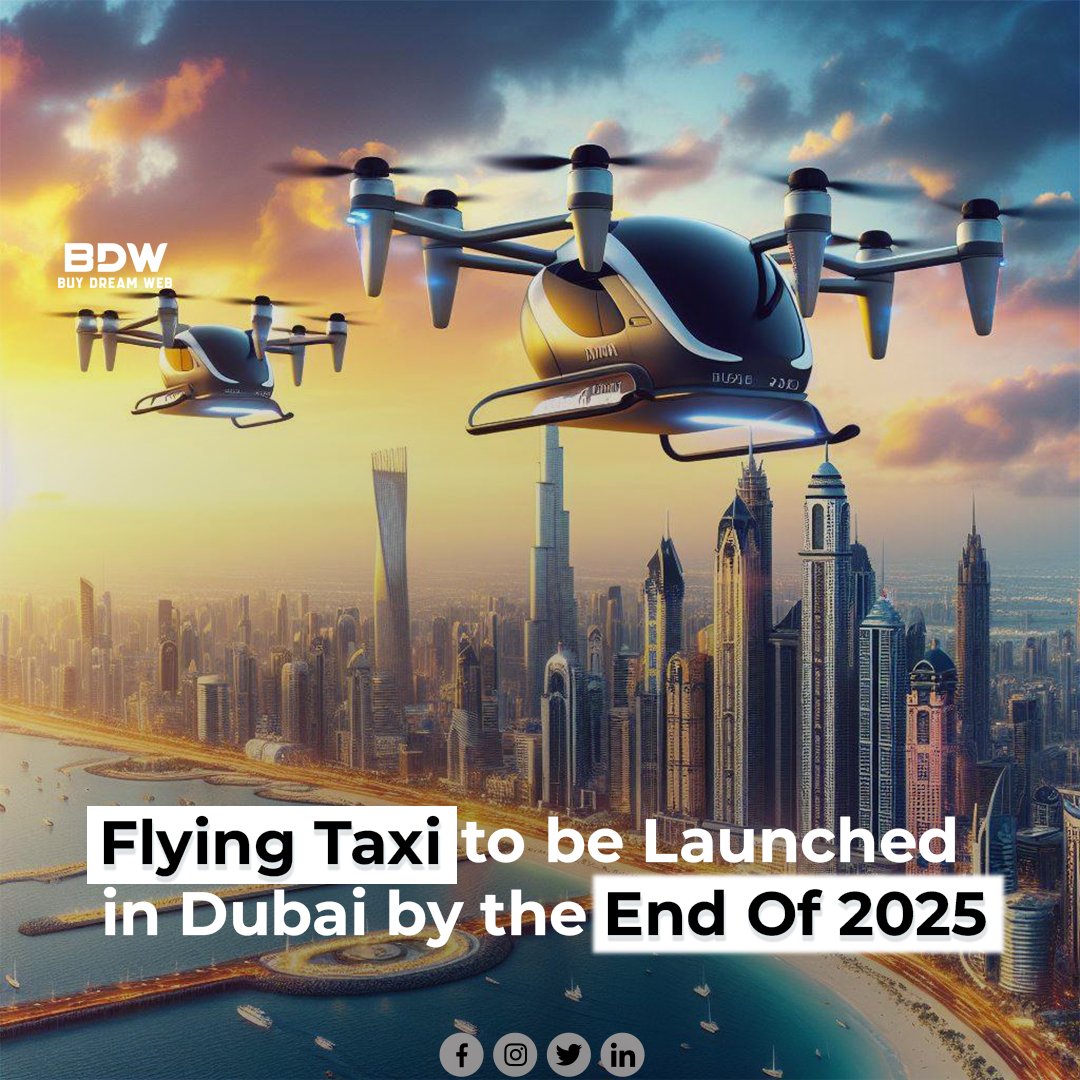Dubai Takes Flight: Unveiling the World’s First Commercial Flying Taxi by 2025 – Hype or Reality?
The futuristic vision of soaring through the skies in a personal flying taxi might seem like something out of science fiction, but Dubai is poised to make it a reality. With ambitious plans to launch the world’s first commercial flying taxi service by the end of 2025, the Emirate is not only aiming to revolutionize transportation but also spark global conversations about the future of urban mobility. But before we book our skyrides, let’s delve deeper into the details, explore the potential benefits and challenges, and ponder the broader implications of this groundbreaking initiative.
Beyond the Headlines: Understanding the Technology
- The Players: Joby Aviation, a California-based company developing electric vertical takeoff and landing (eVTOL) aircraft, has partnered with the Dubai Roads and Transport Authority (RTA) to bring this project to life.
- The Vehicle: Joby’s S4 eVTOL aircraft, an all-electric, five-seater capable of vertical takeoff and landing, promises a quiet and sustainable mode of transportation.
- The Infrastructure: A network of “vertiports” is being planned across Dubai, serving as dedicated takeoff and landing zones for the flying taxis.
Taking Flight with Caution: Exploring the Pros and Cons
- Revolutionizing Transportation: Flying taxis could significantly reduce traffic congestion, shorten travel times, and provide a unique aerial perspective of the city.
- Boosting Urban Development: This initiative has the potential to attract investment, tourism, and innovation, further solidifying Dubai’s position as a global leader in smart cities.
- Environmental Impact: While electric-powered, the environmental impact of widespread eVTOL operations requires careful assessment and mitigation strategies.
- Safety Concerns: Ensuring the safety of passengers, pedestrians, and other airspace users is paramount, necessitating comprehensive regulations and stringent testing protocols.
- Accessibility and Affordability: Initial concerns surround the potential exclusivity of such a service, raising questions about equitable access and affordability for the broader population.
Beyond Dubai: A Global Conversation on Aerial Mobility
- A Catalyst for Innovation: This pioneering project could pave the way for similar initiatives in other urban centers, driving advancements in eVTOL technology and infrastructure development.
- Regulatory Frameworks: Establishing global standards for airspace management, safety regulations, and environmental considerations is crucial for the responsible integration of flying taxis into existing systems.
- Social and Ethical Implications: Societal attitudes towards personal aerial transportation, potential noise pollution, and the impact on urban landscapes need careful consideration.
From Dream to Reality: The Road Ahead
- Testing and Certification: Rigorous testing and certification processes are crucial before commercial launch, ensuring passenger safety and operational reliability.
- Public Acceptance: Building public trust through open communication, education, and transparency is key to securing societal acceptance for this new form of transportation.
- Sustainable Development: Integrating these innovations within broader urban planning frameworks ensures their contribution to sustainable and inclusive development.
Beyond the Blog: Engaging in Thoughtful Discourse
- How can we ensure the responsible development and deployment of flying taxis, addressing safety, environmental, and equity concerns?
- What regulatory frameworks and infrastructure investments are needed to facilitate the safe and efficient integration of eVTOL technologies into existing airspaces?
- How can we ensure that flying taxis become not just a luxury experience but a truly accessible and sustainable mode of transportation for all?
By actively engaging in these discussions, we can help shape the future of urban mobility and ensure that innovative technologies like flying taxis serve the needs of all, leaving a positive impact on our cities and our planet.
Additional Notes:
- Providing a detailed technical analysis of the Joby S4 eVTOL aircraft, comparing it to other similar technologies under development.
- Discussing the specific plans for vertiport development in Dubai, exploring their locations, design considerations, and integration with existing transportation networks.
- Presenting interviews with experts in urban planning, aviation safety, and environmental sustainability to gather diverse perspectives on the potential benefits and challenges of flying taxis.
- Comparing Dubai’s initiative to similar plans for flying taxis in other countries, analyzing their approaches and challenges to identify best practices and potential pitfalls.
- Maintaining a neutral and objective tone while presenting the information, even when discussing controversial issues and presenting diverse opinions.
I hope this helps you create a comprehensive and informative blog post about Dubai’s ambitious flying taxi project, sparking thoughtful discussions about the future of urban mobility and its impact on our world.
Article Link: https://www.cnbc.com/

 +44 747720 4635
+44 747720 4635

